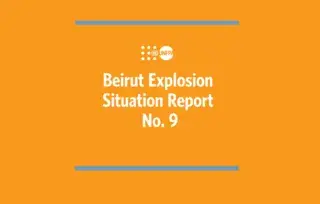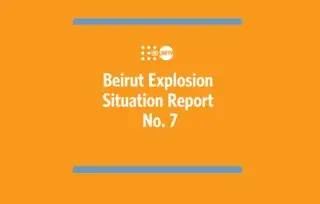On August 4 2020, the devastating Beirut explosion shook the whole city to its core, taking the lives of 191 persons (120 males, 58 females, and 13 unspecified), wounding at least 6,500, and leaving 300,000 people displaced. Prior to the explosion, Lebanon’s crisis has been underpinned by extreme structural gender inequalities: Lebanon ranks 145 out of 153 countries in the World Economic Forum Global Gender Gap Report, due to low rates of women’s economic and political participation and patriarchal socio-cultural norms. The impact of the explosion compounded with the worst economic crisis in the history of Lebanon and the COVID-19 pandemic is likely to significantly push back what gains have been made on gender equality in the country.
This joint rapid gender analysis (RGA) of the Beirut port explosion assesses how diverse women, men, girls, boys, and gender minorities were affected by the events of August 4, with a close look at the specific impact on older, disabled, refugee, migrant, and LBQT (lesbian, bisexual, queer, and trans) women.
The assessment combined a secondary review of existing data with primary data collection. Secondary analysis included reviewing 45 reports, sit-reps, and needs assessments published by United Nations (UN) agencies, international and non-governmental organizations (I/NGOs) since the explosion and conducting gender analysis on three quantitative datasets from assessments carried out in response to the explosion. Primary data consisted of 16 key informant interviews (KIIs), 4 focus group discussions (FGDs) with 17 participants, and 16 community interviews – a total of 49 people overall.





